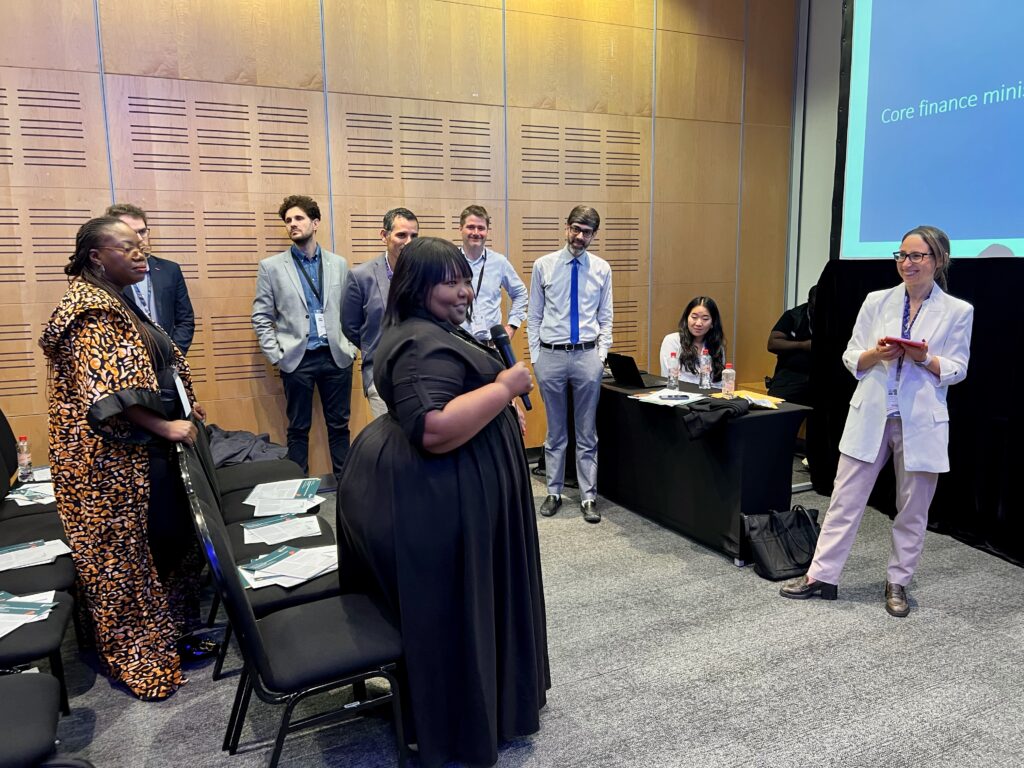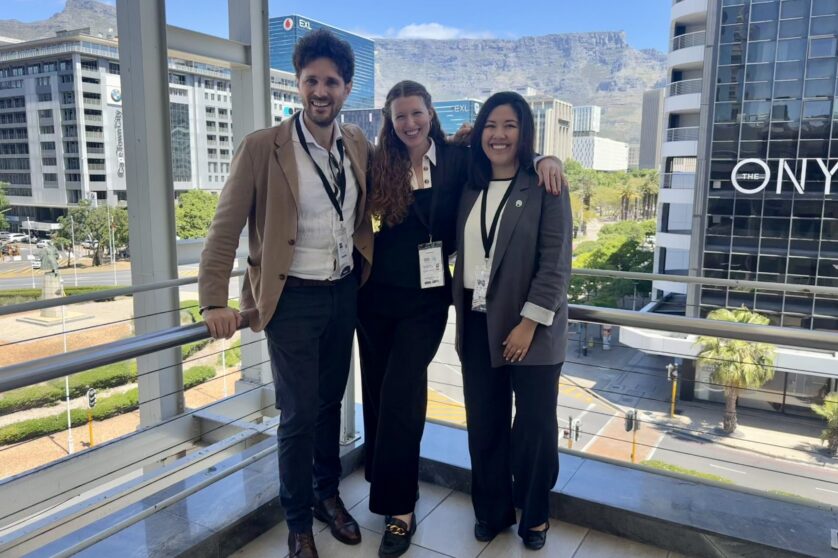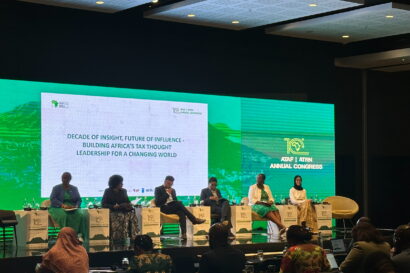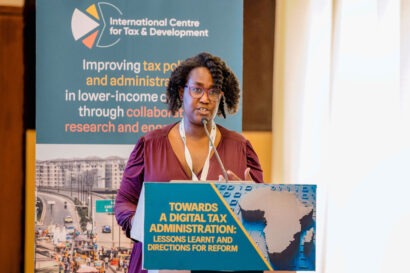From November 4–6, Cape Town hosted researchers, policymakers, civil society, and industry leaders for the Global Digital Public Infrastructure Summit, a space to discuss countries’ progress on DPI and how to ensure its design and governance remain safe, inclusive, and citizen-centred.
Now in its second year, the summit underscored that DPI is not only about technology, but about reshaping how governments and institutions interact with people.
ICTD was represented by Fabrizio Santoro, Rhiannon McCluskey, and Lucia Rossel, as well as Moyo Arewa from the Local Government Revenue Initiative. Over the three days, they shared ICTD’s work on digitalisation and taxation and gathered insights on emerging priorities, challenges, and innovations across the DPI landscape.
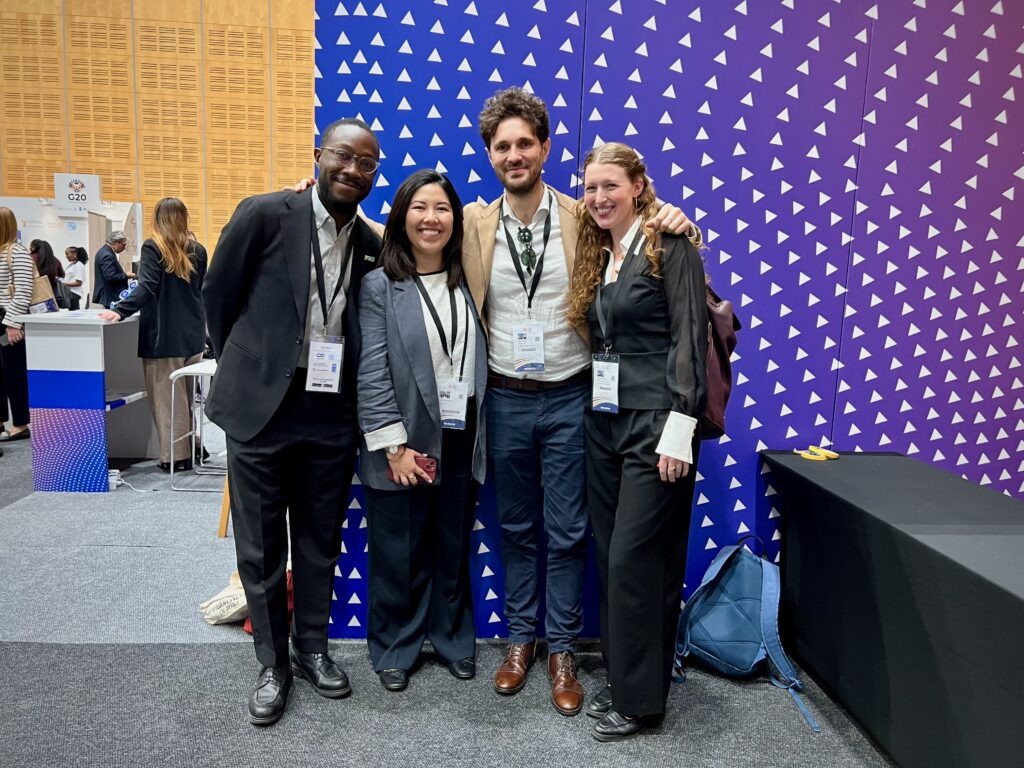
Shaping the DPI and Tax Conversation
At the summit, ICTD shared its latest policy brief, “Digital Public Infrastructure and Tax: High Stakes, High Rewards,” which outlines why the intersection of DPI and taxation is a critical frontier of digital reform. The brief highlights how DPI’s three foundational pillars (digital ID, digital payments, and secure data exchange) can make tax systems more efficient, transparent, and inclusive, particularly in low- and middle-income countries.
Across our engagements, ICTD emphasised that taxation can play a key role in strengthening DPI by driving adoption, supporting interoperability, and contributing to long-term sustainability. Conversely, well-designed DPI can benefit tax administration by improving identification, easing compliance, and reinforcing taxpayer trust through strong governance and privacy safeguards.
Throughout the summit, our team met with representatives from Tanzania, South Africa, Sri Lanka, the Dominican Republic, and others. These conversations helped us understand country priorities in strengthening revenue systems and identify promising opportunities for collaboration on digital ID integration, payment interoperability, data sharing, and inclusive digitalisation.
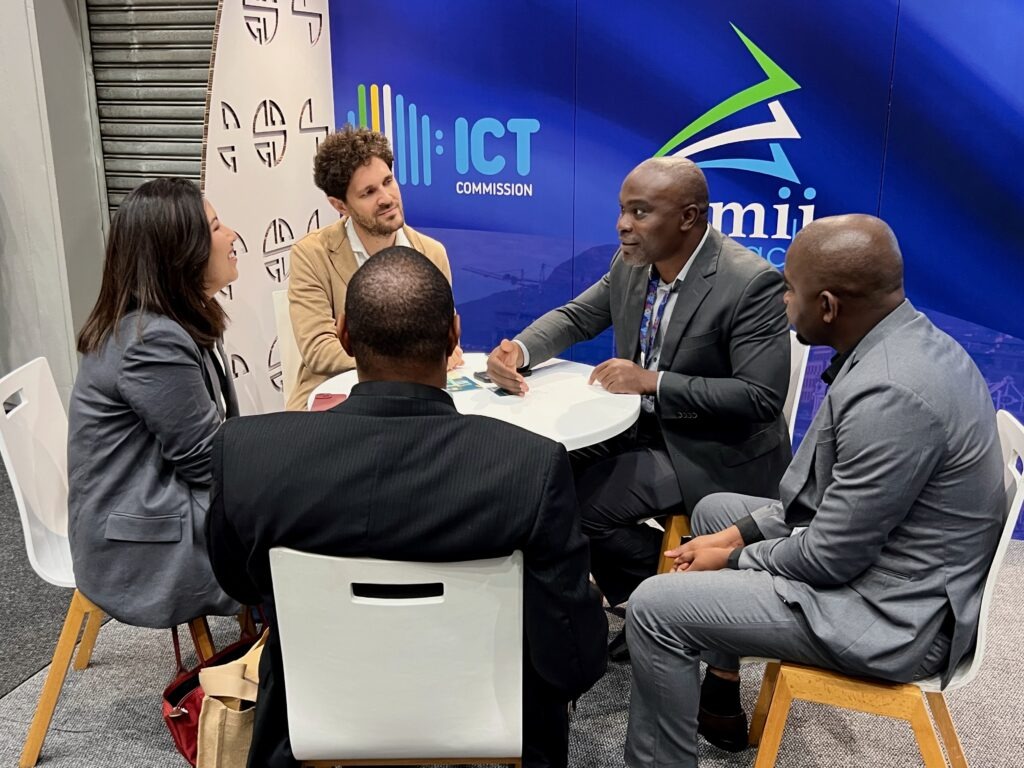
Participating in the Dialogue
On November 6th, the ICTD team joined the session “Doing More with Less: What a DPI Approach to Government Expenditure and Revenue Can Do,” organised by the Gates Foundation, Public Digital, and Civic Data Lab.
The session was designed as an interactive discussion, bringing together government officials, civil society, and technical experts. Participants worked through a series of thought-provoking questions, debating issues such as whether ministries of finance should establish unified standards for local financial-management tools and how to balance investments between core systems and frontline services.
The ICTD team contributed insights on taxation, drawing on our research on digitalisation, digital IDs, payments, and data sharing. Throughout the discussion, we emphasised that trust and inclusion must underpin any digital transformation of tax systems, and that DPI and tax reforms should reinforce fairness and transparency rather than undermine them.
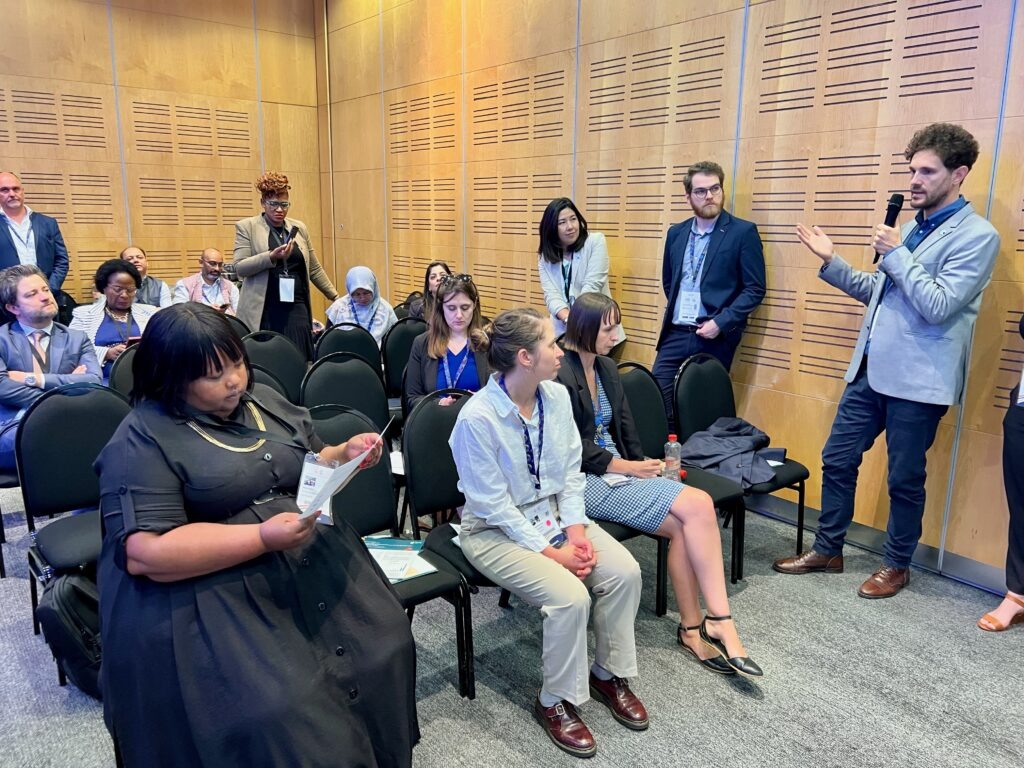
Looking Ahead: Our Research on DPI and Tax
The summit reinforced that the journey toward safe, inclusive digital public infrastructure is still unfolding. Through our DPI and Tax Programme, we aim to contribute to this work by generating practical, evidence-based insights for governments and partners navigating this rapidly evolving field.
We look forward to continuing the conversations begun at the summit and deepening our research on how DPI can strengthen revenue systems while promoting trust, transparency, and inclusion.
